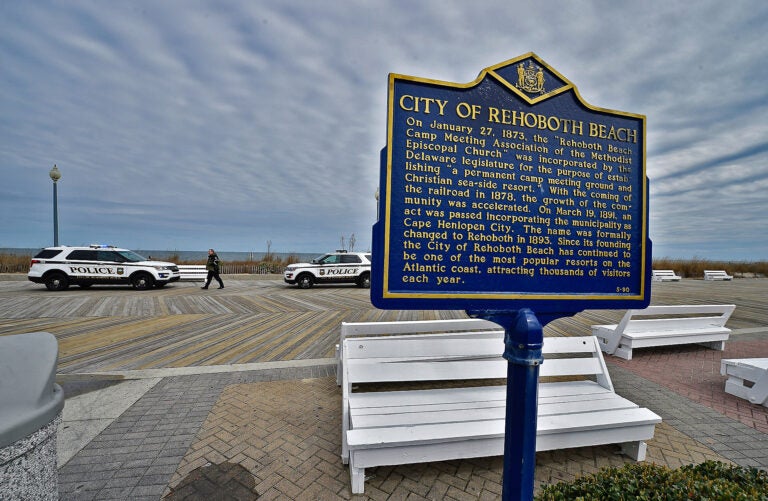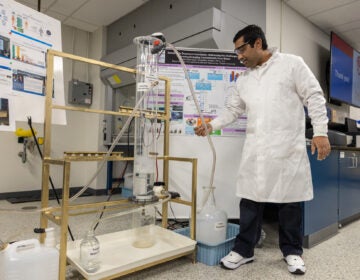Rehoboth commissioners vote against $20M wastewater partnership
The proposed project would have disposed of 5 million gallons of additional treated wastewater per day from the surrounding Lewes and Wolfe Neck communities.
Listen 1:13
The Rehoboth Beach boardwalk (Butch Comegys for WHYY)
This story is part of the WHYY News Climate Desk, bringing you news and solutions for our changing region.
From the Poconos to the Jersey Shore to the mouth of the Delaware Bay, what do you want to know about climate change? What would you like us to cover? Get in touch.
City leaders in Rehoboth Beach, Delaware voted 5-2 against a $20 million dollar deal Friday that would’ve seen the beach town accept treated wastewater from a county-owned facility and dispose of it into the city’s ocean outfall.
The proposed project would have connected the Wolfe Neck Regional Wastewater Facility to the ocean outfall pipes along Rehoboth Beach’s shores — disposing of 5 million gallons of additional treated wastewater per day from the surrounding Lewes and Wolfe Neck communities.
Those in favor of the proposal said it would divert treated wastewater from the area’s Inland Bays, which have historically been polluted by wastewater runoff. Proponents also said the money would prevent the need to raise sewer rates.
However, Rehoboth Beach Commissioners ultimately voted against Sussex County’s offer, which would have given the city $20 million to enter into a three-way partnership between the city, the county and the Lewes Board of Public Works.
Some members said details about future cost sharing were too fuzzy, while others argued $20 million is simply not enough to offset potential risks.
“This in no way reflects the value of disposing of 5 million gallons a day,” said Commissioner Suzanne Goode.
Rehoboth already receives money from the county to treat and dispose of wastewater from Dewey Beach, Henlopen Acres and other unincorporated areas. The city began discharging wastewater into the ocean following a 2002 court order to stop disposing it in the Lewes-Rehoboth Canal.
The canal has historically been impacted by runoff from wastewater facilities, which can reduce oxygen levels fish and other aquatic life rely on to survive.
Christophe Tulou, executive director of the Center for Inland Bays, said he was in favor of the failed deal.
“If that water goes into our bay water, for example, it will feed algae. They cloud up the water so that we can’t get the bay grasses to grow, which are a critical part of that environment. They also then die, and then when they are decomposing, they suck all the oxygen out of the water,” he said.

Get daily updates from WHYY News!
WHYY is your source for fact-based, in-depth journalism and information. As a nonprofit organization, we rely on financial support from readers like you. Please give today.






